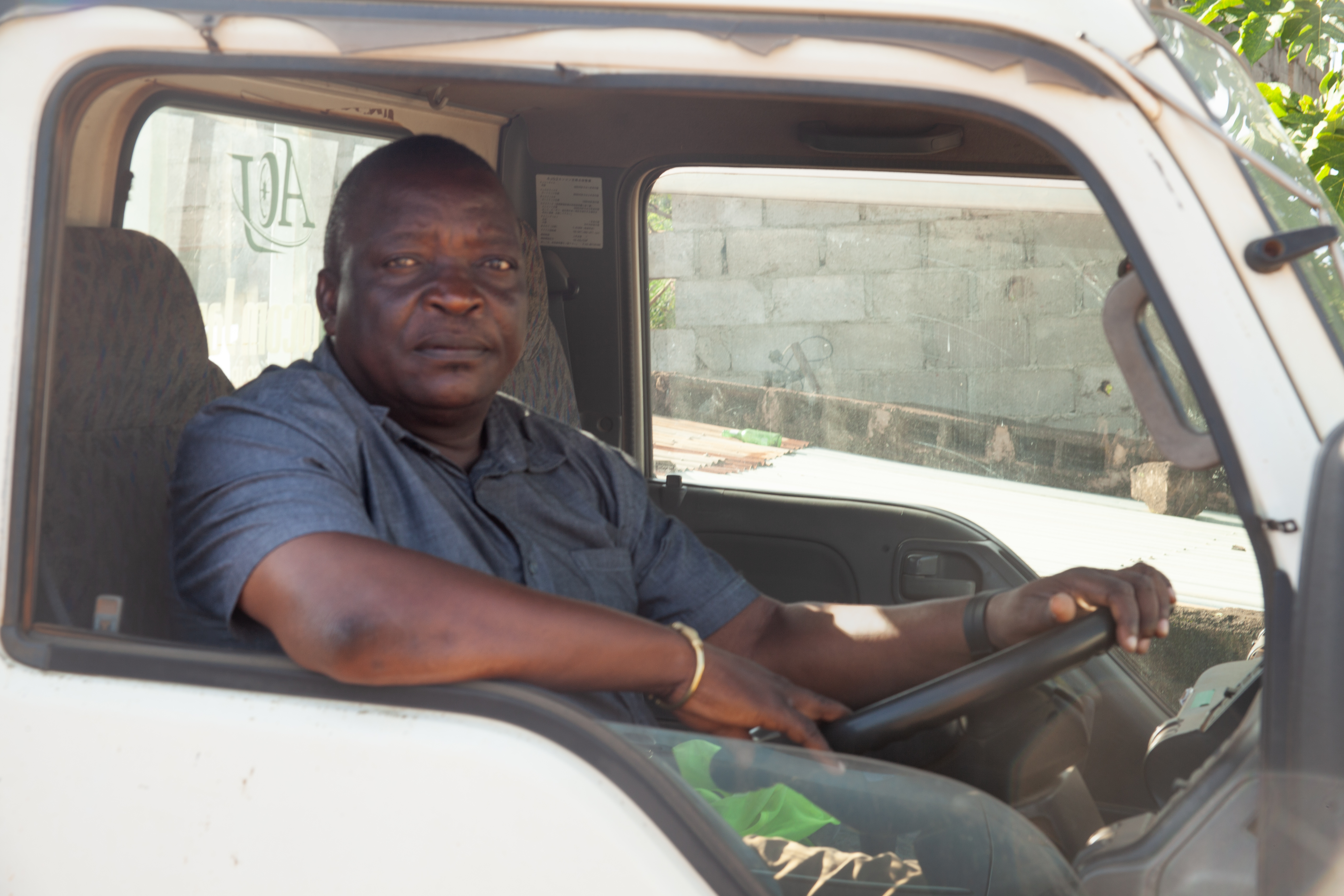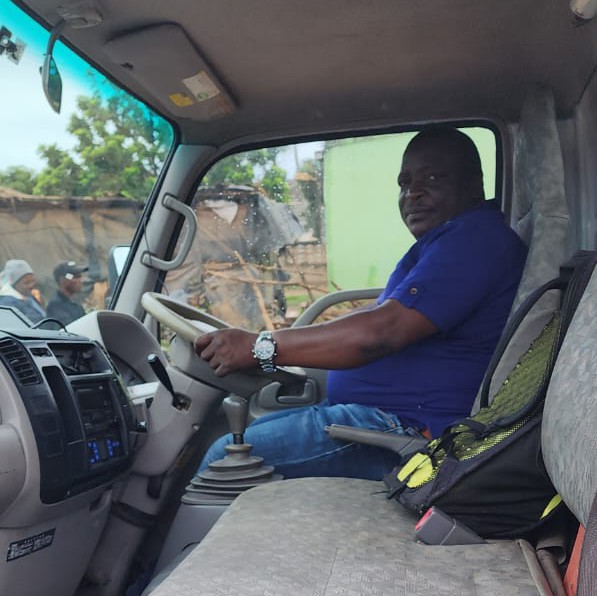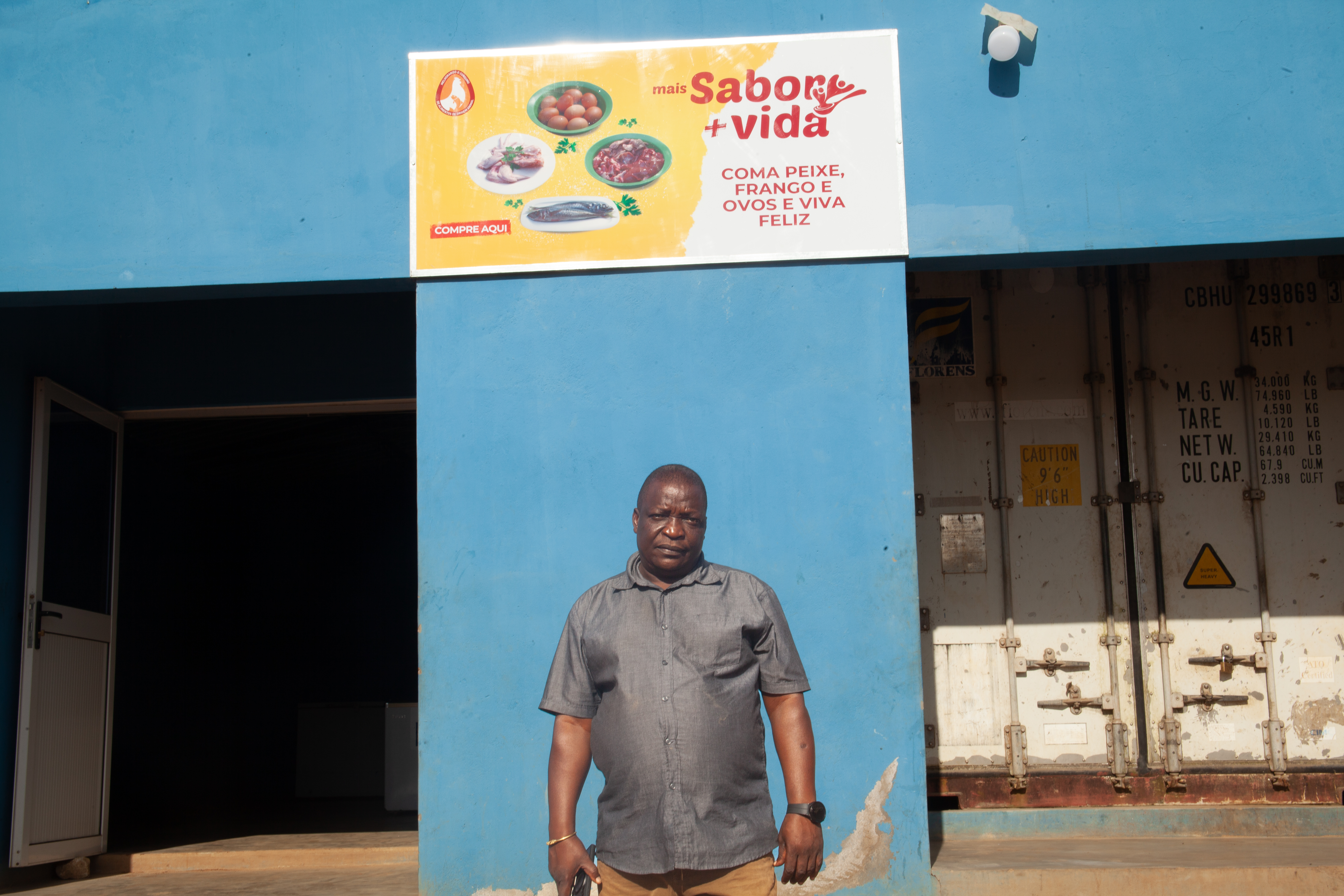Chimoio, Mozambique – A white Hino truck rattles under its own weight on the bumpy road, while its tires throwing particles of dust from the asphalt in the air from the district of Cantandica, Manica province, central Mozambique.

“We must arrive at Catandica district by 8pm today, then we'll go straight to the district of Guro, where we'll arrive by 9pm”, said a Manager of Peixaria Pensa, a beneficiary of GAIN’s project Improving Consumption of Food of Animal Origin, to his driver and two assistant in the truck, when the sun was still setting between the Chimoio and Cabeça do Velho mountain ranges.
Inside the lorry, just over 2,000 kilos of fish and 1,100 kilograms of chicken pieces are stacked one on top of the other. However, due to the absence of a refrigeration system, they may gradually defrost during the overnight journey. This ends up reducing the preservation levels of the products.
“Nights are cooler than the days, which is why we travel at night to sell fish and chicken pieces”, said Joaquim That's the strategy we've found for travelling to areas that are far from the city, to sell fish and chicken pieces without them spoiling.”

Around the world, about 14 per cent of food, valued at 400 billion dollars, is lost every year between harvest and the retail market (FAO 2019). At the same time, it is estimated that 17 per cent of food is wasted at retail and consumer level (UNEP, 2021).
“Even travelling at night, sometimes we arrive at our destination with the ice already melted,” says Gavião, as he looks at the luggage compartment where his co-workers usually unload fish and chicken with him.
“When we started this business, we saw a lot of people travelling long distances to buy fish and chicken pieces here in the city to resell in their communities. This created business opportunities for us.” he says.
But he says, “we used to lose a lot of fish and because of that we ended buying this refrigerated truck with a capacity of 3 tonnes,” recalls Gavião, as he drives along the road in the truck, which broke down in 2021, which meant that journeys had to be made only at night for two years.
Approximately 80 per cent of Mozambicans calorie intake comes from cereals and roots (WFP 2016), while animal source foods, rich in protein, and legumes, which are fundamental for a balanced diet, are often absent from their diets. This lack of food represents a considerable health risk, intensifying nutritional deficiencies.
In the daylight: fresh animal-sourced food, safe for more people
But in February 2023, everything changed for this entrepreneur. After two years of travelling to these communities to sell fish ‘with his heart in his hand’, Gavião received a 4-tonne refrigerated truck from GAIN to guarantee access to fresh, safe fish for rural communities.
“Now my products are safe, and I can travel at any time without any problems and the communities have access to safe, fresh and cheap animal source foods,” said Gavião.
To contribute to improving the consumption of foods of animal origin in a safe condition, GAIN has been implementing the Improving Consumption of Animal Source Foods project since 2022, through which Gavião received the refrigerated lorry to ensure that he expands his business and thus reaches more people from communities living in rural areas.
This project has been funding small and medium-sized enterprises involved in the distribution and sale of food of animal origin in the rural market, as a way of guaranteeing greater access to this food for more remote communities. In addition to the trucks offered, the companies have received fridges, freezers, coolers and for some of these companies GAIN has built or rehabilitated their shops.
“In addition to the refrigerated truck, the companies received freezers, had a shop built and its main shop in the city of Chimoio rehabilitated. It also received a refrigerator,” João Alberto, the project manager.

“Our eyes are focused on the communities, and entrepreneurs like Peixaria Pensa are one of the means of reaching the most remote communities,” added João Alberto, emphasising that under this project, through other components, “1.1 million people will benefit from it.”
As part of this project, GAIN has financed a total of eight companies to guarantee that more people have animal sourced food. These companies are in the provinces of Sofala, Tete, Zambézia, Nampula and Niassa, in the centre and north of Mozambique.